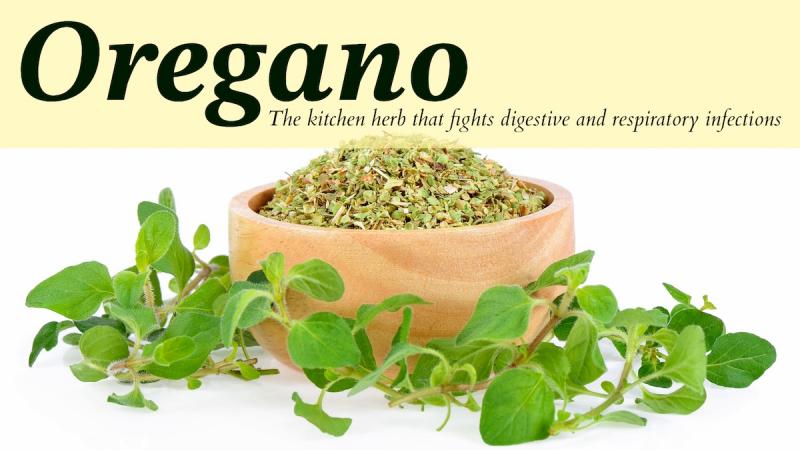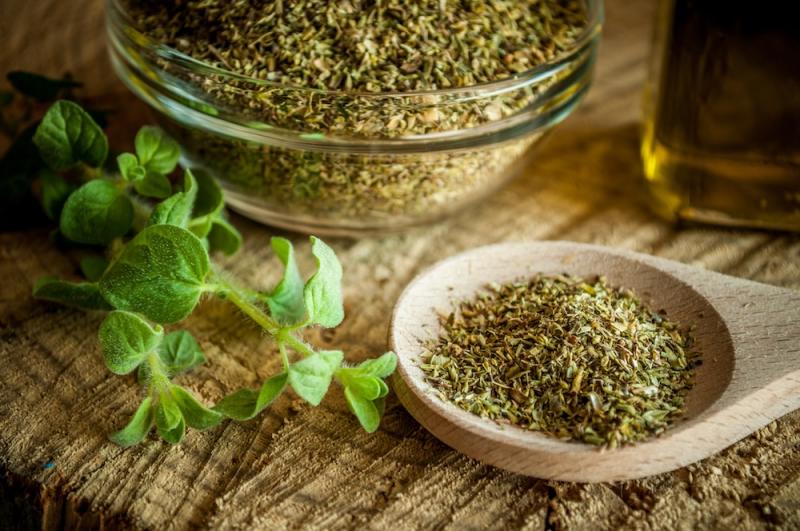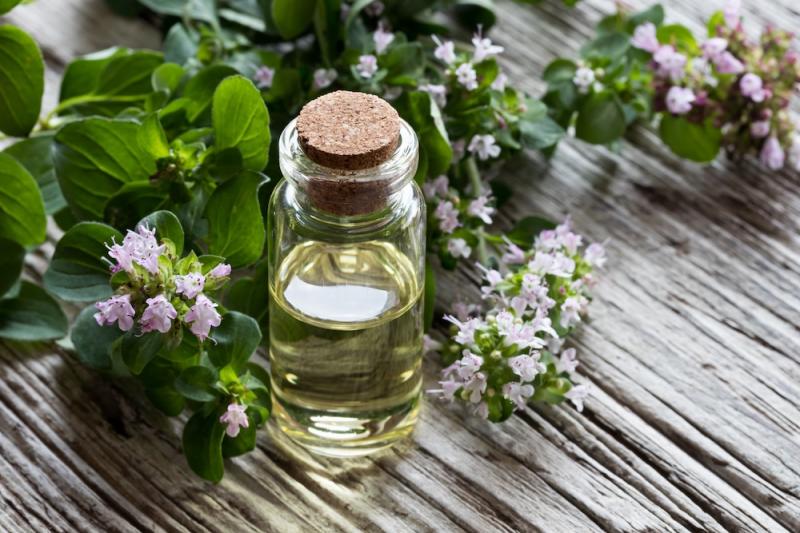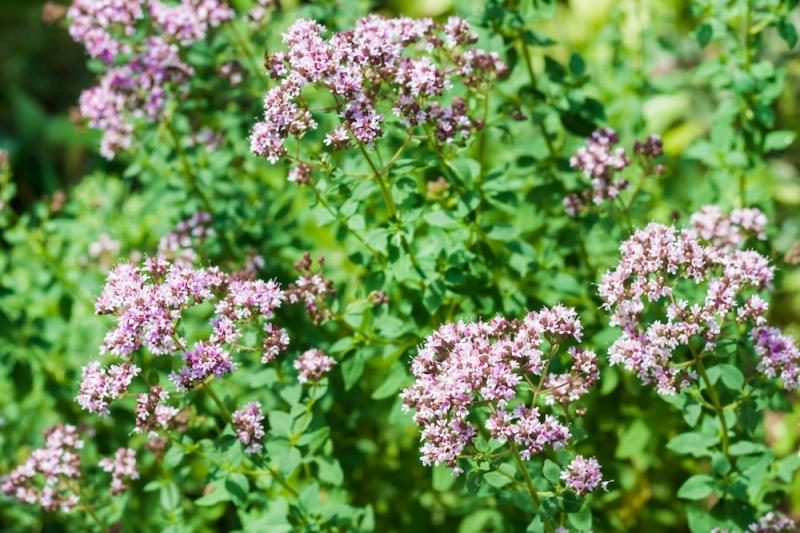
Oregano is an essential component of Greek, Italian-American, and Mexican cuisines. Native to Europe, the Mediterranean, and parts of Asia, it is often found in tomato sauces, vegetable dishes, and grilled meats. As a member of the mint family, it is an aromatic with a warming and slightly bitter taste. However, oregano is also a valuable herbal medicine, both as an herb and essential oil.
Oregano’s Medicinal Value
 The use of oregano as a medicine dates back to the time of Hippocrates and like many other members of the mint family has traditionally been used as a remedy for digestive and respiratory problems. Taken internally it acts as an expectorant and carminative, helping to clear mucus from the respiratory passages and clear gas and stagnation from the gastrointestinal tract.
The use of oregano as a medicine dates back to the time of Hippocrates and like many other members of the mint family has traditionally been used as a remedy for digestive and respiratory problems. Taken internally it acts as an expectorant and carminative, helping to clear mucus from the respiratory passages and clear gas and stagnation from the gastrointestinal tract.
Oregano is a useful remedy for fighting infections of all kinds, bacterial, viral, and fungal. This is primarily due to the antimicrobial properties of its essential oil, which contains carvacrol and thymol, two antimicrobial monoterpenes. Both of these compounds are also found in the essential oils of thyme and monarda or bee balm, which combine well with oregano to help fight infections.
For fighting colds and flu it’s best to use oregano as a warm tea, so it acts as a diaphoretic to help sweat out the illness. Internally, it works great for treating intestinal dysbiosis, small intestinal bacterial overgrowth (SIBO), and yeast infections or candida. Oregano herb or extract is typically combined with other antimicrobials and antifungals such as andrographis, thyme, usnea, and pau d’arco.
Using Oregano Essential Oil
 The essential oil of oregano has become popular for treating yeast and fungal infections. I’ve personally taken a commercial oregano oil product in capsules for SIBO and found it very helpful. However, when using oregano oil internally, it must be properly diluted and should be used for limited periods of time. I would dilute oregano oil 1:10 in olive or coconut oil and take five to ten drops of the diluted oil once or twice daily for a maximum of six weeks.
The essential oil of oregano has become popular for treating yeast and fungal infections. I’ve personally taken a commercial oregano oil product in capsules for SIBO and found it very helpful. However, when using oregano oil internally, it must be properly diluted and should be used for limited periods of time. I would dilute oregano oil 1:10 in olive or coconut oil and take five to ten drops of the diluted oil once or twice daily for a maximum of six weeks.
You can also combine it with peppermint oil for irritable bowel syndrome and SIBO. Use two or three drops of peppermint oil and mix them with one drop of oregano oil. Dilute the mixture 1:5 in olive or coconut oil and take 5 drops of the diluted oil two or three times daily.
You can also dilute the oil 1:10 and use it topically to fight skin infections such as acne, nail fungus, and ringworm. Avoid exposure to sunlight after applying.
The oil can also be inhaled for respiratory infections, including viral and bacterial pneumonia. Either smell it directly out of the bottle or add a few drops to boiling water and inhale the steam.
Emotional Benefits of Oregano
The essential oil of oregano is camphoric and herbaceous with a woody undertone. It is stimulating and invigorating and has mood-elevating effects. It helps overcome mental fatigue and brain fog, promoting greater clarity of thought. It also helps to calm down the emotions, promoting more rational thinking.
Using Oregano Herb and Essential Oil
 I’ve grown oregano in my garden. It’s nice to be able to gather the leaves and use them fresh or dry them for later use. To make a tea use ½ teaspoon of the herb per cup of water and steep for five minutes. You can drink one or two cups a day.
I’ve grown oregano in my garden. It’s nice to be able to gather the leaves and use them fresh or dry them for later use. To make a tea use ½ teaspoon of the herb per cup of water and steep for five minutes. You can drink one or two cups a day.
You can also make a tincture or glycerite of the fresh plant, which is more effective than the dried herb because you get more of the essential oil in the extract. For the tincture use 70% alcohol. Use the sealed simmer method for the glycerite.
Commercially prepared oregano oil in capsules are also an option. An oregano spirit can be made by diluting the essential oil in alcohol. Use either preparation when you have problems with belching, bloating, bad breath, and a sour stomach. The dried herb in capsules is less effective because of the loss of essential oils in drying and powdering the herb.
Pregnant women should avoid the use of oregano oil because it may be a uterine stimulant. Breast-feeding women should also avoid it because it can decrease milk supply.
Downloads
Steven's Articles
-

-
Teasel
A traditional herb for healing injured bones and…
-

-
Barberry and Healthy Personal Boundaries
A thorny shrub for fighting infections and supporting…
December
-

-
The Evidence for Berberine
A yellow alkaloid found in traditional infection-fighting…
-

-
The Sensible Use of Caffeinated Herbs
Kola nuts, guarana, and yerba mate and other herbs…
-

-
The Health Benefits and Problems with Coffee
This popular caffeinated beverage can be beneficial…
October
-

-
Understanding Caffeine & Cellular Adaptation
Preserving the power of caffeine's buzz and the…
September
-

-
Horseradish
A pungent spice for aiding protein metabolism…
-

-
Banaba or Crepe Myrtle
A beautiful tree from Southeast Asia whose leaves…
August
-

-
Monkeyflowers
Flower essences to help see ourselves more clearly…
-

-
Mariposa Lilies
Strengthening the bond between mother and child…
-

-
The Noble Bay Leaf
A common kitchen herb for aiding digestion and…
-

-
Epimedium: Horny Goat Weed
A circulatory stimulant and kidney yang tonic…
July
-

-
The Medicinal and Nutritional Benefits of Apricots
A nutritious fruit and valuable medicinal seed for coughs
-

-
Dogwoods
Asian dogwood is used to stop excessive discharge,…
June
-

-
Neem: The Village Pharmacy
A popular Ayurvedic remedy for dental and immune…

